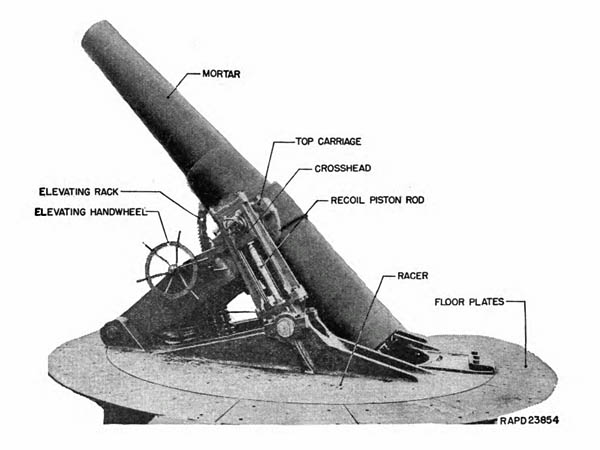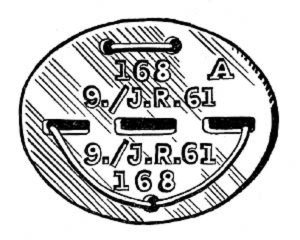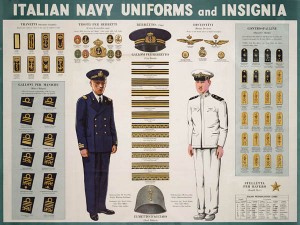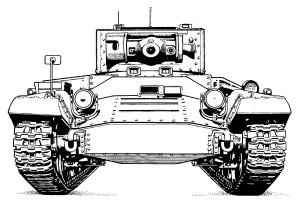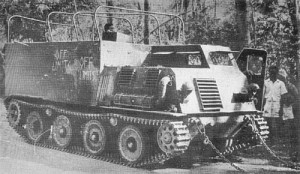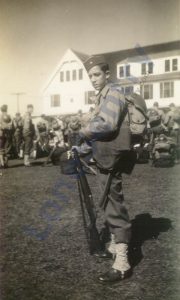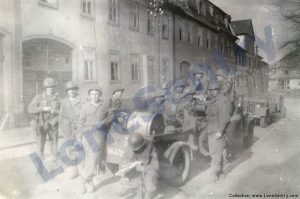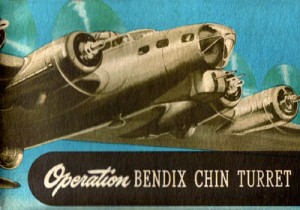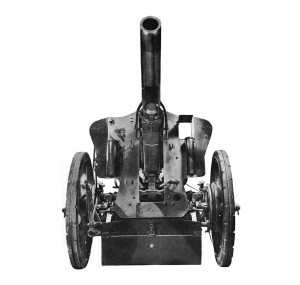Description and characteristics of the 12-inch Mortar M1912 from TM 9-458: 12-inch Mortar M1912 Mounted on 12-inch Mortar Carriage M1896MIII, U.S. War Department Technical Manual, Washington, D.C., August 1942.
12-inch Mortar M1912 Mounted on 12-inch Mortar Carriage M1896MIII
Characteristics.
These 12-inch mortars are comparatively short-barreled weapons able to fire in all directions (360° traverse) but only at high angles of elevation. The maximum elevation attainable is approximately 65°. The minimum elevation (just clearing the emplacement walls) is 45°. The weapon must be depressed to 0° between rounds for loading. These mortars are no longer manufactured.
FIGURE 1.–12-inch mortar M1912 on mortar carriage M1896MIII.
3. Data.
a. 12-inch mortar M1912.
Length, total over-all inches 208. Length, muzzle to breech face do 200. Length of bore in calibers 15. Maximum diameter of chamber do 12.5. Weight, including breech mechanism pounds 33,300. Type of construction Wire wound. Rifling: Twist Right hand, increasing from 1 turn in 40 calibers to 1 turn in 20 calibers. Number of grooves 108. Groove, width inches 0.2091. Groove, depth do 0.06. Land, width do 0.14. Breech mechanism: Type of breechblock Slotted screw. Type of breech operating mechanism Stockett. Power Hand. Type of firing mechanism Combined friction and electric. Model of firing mechanism Seacoast firing mechanism M1903. Muzzle velocity, maximum (700-lb. projectile–zone 10) feet per second 1,800. Muzzle velocity, maximum (1,046-lb. projectile–zone 8A) feet per second 1,200. Range, maximum (700-lb. shell) yards 17,895. Range, minimum (1,046-lb. shell) yards 2,150. Life of mortar (full charge) rounds 1,000. Rate of fire (normal) minutes per round 4. Rate of fire (maximum) do 3.
b. 12-inch mortar carriage M1896MIII.
Type Fixed. Total weight pounds 132,000. Total weight tons 66. Elevating mechanism: Type Spur. Power Hand. Change in elevation for one turn of elevating handwheel degrees 9.46. Elevation for firing (maximum) do 65. Elevation for firing (minimum) do 45. Elevation for loading do Zero. Method of reducing friction in trunnions Bushing. Traversing mechanism: Type of bearing Roller. Mean diameter of roller path feet 12 1/4. Traverse for 1 turn of traversing handwheel degrees 2.2. Maximum traverse do 360. Base ring, outer flange diameter feet 14 1/4. Racer diameter do 14. Recoil mechanism: Type Hydraulic. Number of cylinders 2. Length of recoil inches 23. Orifices Grooves. Buffer Dashpot. Recuperating mechanism: Type 4 columns of springs. Force holding mortar in battery tons 50 1/2. Sections per column (each section consisting of an inner and an outer spring) 5. Electrical data: Lighting circuit– Power 110 volt d-c. Lamps, type (azimuth and quadrant) Electric bayonet base, double contact, frosted bulb, 8 candle power, 12-16 volt. Switch 5-ampere, double pole. Firing circuit– Power Magneto type MA.
c. Sighting and fire-control instruments.
(1) The sighting equipment supplied with this mortar may including the following instruments:
(a) Clinometer.
(b) Telescope.
(c) Telescope mount.
(d) Gunner’s quadrant.
(e) Bore sight.
(f) Clinometer bore rest.(2) The fire-control equipment supplied with this mortar may include the instruments listed below. At various harbor defenses the model of any one item may vary. It is also possible that some of the items listed below may not be used at a particular battery.
(a) Scale arm M1906.
(b) Adjustment board.
(c) Range correction board.
(d) Deflection board.
(e) Plotting board.
(f) Spotting board.
(g) Percentage corrector.
(h) Depression position finder.
(i) Wind component indicator.
(j) Azimuth instrument.
(k) Set-forward rule.
(l) Prediction scale.
(m) Observation telescope.d. Subcaliber gun (2.95-inch).
Weight of subcaliber tube pounds 224. Caliber: inches 2.953. Length of bore, including chamber do 31.6. Length of rifled portion of bore do 24.33. Rifling, uniform, 1 turn in 25 calibers, right-hand twist: Number of grooves 30. Width of grooves inch 0.23. Depth of grooves do 0.023. Capacity of powder chamber cubic inches 34.9. Weight of projectile pounds 18. Weight of cartridge case do 1.45. Muzzle velocity: 18-pound projectile feet per second 550-700. Maximum chamber pressure pounds per square inch 18,000. Maximum range yards 4,142. Minimum range do 1,975.

